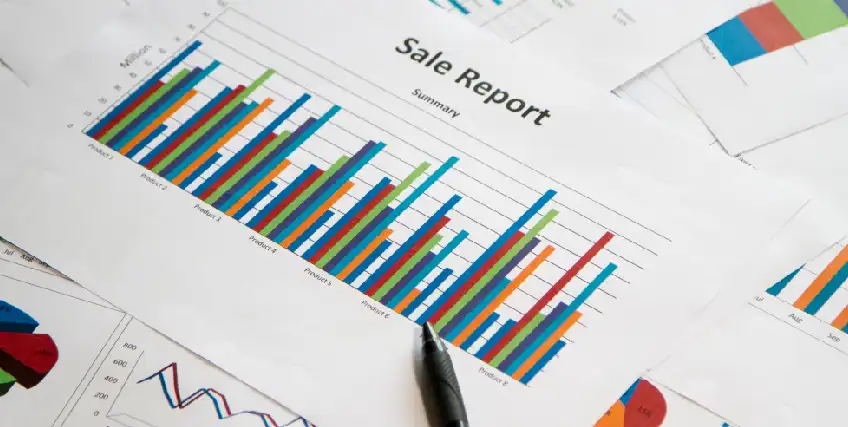How to Get Approved for a Small Business Loan Online
September 8, 2025 | Last Updated on: September 8, 2025

Getting a loan for business purposes can seem difficult for small business owners. Whether its a term loan, online business line of credit, or other short-term lending option, there are several steps to get the lending you need.
In this guide, we’ll go through a few steps to help you secure a small business loan online and ensure that you have the funding you need when you need it.
Defining Your Goals
When considering business financing like a business credit line, it’s important to have a clear purpose for the new capital. Not only because your lender is likely to ask, but also because you don’t want to be paying interest on debt for something that isn’t helping your company grow. Defining your goals upfront allows you to make a rational decision about the funding that you need.
Once you know why you need funding, you’ll also be able to start narrowing down the type of funding you need. Here are several factors to consider when selecting the right loan for your needs:
- Term length you need
- How quickly you need a loan
- What size loan you need
- If you need capital all at once or need financing on an as-needed basis
Knowing the answer to these questions upfront will help you as you fill out your business loan application, and will also help you when you make your initial contact with lenders, who are likely to ask similar qualifying questions right off the bat.
Different Types of Online Small Business Loans
To increase your chances of getting approved for a loan (like a business credit line), it’s crucial that you do your research on different online loan options and find the one that best fits your needs (and make sure you meet the eligibility requirements).
Here are a few of the most common loan types:
Traditional term loans
A term loan provides you with a lump sum upfront, and then you make payments over a predetermined length of time (usually 5 to 30 years) until the loan is paid off.
You can typically get a term loan from most traditional banks or credit unions, but an online small business lender is typically able to provide faster funding, and you may be able to complete the entire process online.
SBA loans
SBA loans are backed by the Small Business Administration, and typically come with lower interest rate. With a 5 to 25 year repayment term and a high borrowing limit, these are great loans for many business owners. However, they do require a lengthy credit application process that can be cumbersome.
As you’re evaluating SBA loans, be sure to consider that there may be fees such as origination and prepayment penalties.
Business lines of credit
An online business line of credit lets you access financing on an as-needed basis to cover expenses like payroll or unexpected repairs. Unlike a loan, where you receive a lump sum upfront, and pay it back, a business line of credit lets you draw on a predetermined amount, but you only pay interest on what you borrow. In this way, it’s similar to a credit card. Typically, once you’re approved for a line of credit, you can access it for multiple years as long as you remain current on your payments.
Of note, lines of credit can carry a higher interest rate than a business loan, but you can be approved for a line of credit in as little as one business day, making this a convenient option for business owners in need of fast cash.
Keep in mind that business line of credit rates will vary.
Working Capital Loans
Working capital loans are used to finance everyday operations, as opposed to buying assets or investments. If you need cash to cover short-term operational needs, this might be the type of loan for you.
Since they’re designed for everyday use, working capital loans are fairly easy to obtain, and allow you to cover gaps in your operating expenses. To ensure that your debt is paid, a lender may ask for collateral in the form of business assets or a personal guarantee. But if you have good credit, it is possible that you could qualify for a loan that doesn’t require collateral.
Merchant cash advances
A merchant cash advance, not technically a loan, is a funding option that is unique in that the cash you receive from your funding provider is based on your future sales. In exchange for a specific amount of funding, you promise to pay back the debt with interest using a set percentage of your revenue.
Merchant cash advances are typically structured in one of two ways:
- Percentage of debit/credit card sales: The funding provider automatically deducts a daily (or weekly) percentage of your debit and credit card sales until the advance is repaid in full.
- Fixed withdrawals from a bank account: The financing provider withdraws funds directly from your bank. Fixed repayments are made daily or weekly from your account regardless of how much you earn in sales, and the fixed repayment amount is determined based on an estimate of your monthly revenue.
Startup financing
If your business is new, you may not be able to get financing from a bank, as most lenders require you to have been in business for at least a year for some loan options. If you’re launching a startup, it may be beneficial to open up a business credit card or take out a personal loan to access the necessary funding.
Qualifying
Different lenders and loan programs have varying qualifying factors that will determine your eligibility, and before spending time filling out paperwork and having your credit checked, it’s best to make sure you understand what the qualifications are and know that you meet them. To do this, you’ll need to have:
- Your personal credit scores, business credit scores, and credit history. Check your creditworthiness for free with one of the three major credit bureaus: Equifax, Experian, and TransUnion.
- Records showing how long you’ve been in business. You need to have been in business for at least one year to qualify for most online small-business loans.
- Proof of your annual revenue. Many lenders require a minimum annual revenue. If your revenue isn’t high enough, consider looking into short-term business loans, startup financing, or SBA microloans instead.
The loan approval process can vary a lot between lenders and types of loans, but going in knowing what to expect and if you’re likely to be approved will save everyone’s time.
In general, having a good credit score, being in business longer, and having a higher revenue will always help you qualify for more types of loans. When in doubt, contact a few lenders and have some fact-gathering conversations.
Preparing Your documents
Once you’ve determined what type of loan you qualify for, you can begin preparing the materials you need for your actual application. Depending on the type of loan and lender you’ve chosen, you’ll need to prepare a combination of the following documents:
- Business and personal tax returns
- Business and personal bank statements
- Business financial statements
- Business legal documents (like your articles of incorporation, for example)
- Business plan
Having these documents prepared will help you avoid delaying the approval processes further. We’ve all been in situations where we start filling out a form, realize that we don’t have all of the information that we need, and then forget to go back and finish for several days or more. Preparing ahead of time can ensure that you can submit your application in one sitting without any delay. If you anticipate any delays, your business accountant may be able to help you collect the necessary documents and apply.
Final Thoughts
To get a business credit line or other business financing you need doesn’t have to be difficult. To recap, start by making sure that what you are doing is strategic, and that you can explain it to your lender in a way that makes good business sense. Then, check out the various loan types and find the ones that best fit your situation (and that don’t have a crazy high annual percentage rate). Next, gather all your documents, check your credit report to make sure you don’t have bad credit, and then get started on that application! When working with online lenders, that’s really all there is to it—it’s not nearly as complicated as it is with some traditional lenders, and you still have plenty of freedom to check around for the best rates and the best loan options.
FAQs about Business Credit Lines
Can I get a line of credit for my business?
Yes, many lenders offer business lines of credit with flexible access to funds up to a set limit, ideal for covering short-term expenses or managing cash flow. To qualify, you’ll typically need to show consistent revenue, a good credit score, and a solid business history.
What is the minimum credit score for a business line of credit?
The minimum credit score needed for a business line of credit depends on the lender. However, typical credit approval starts around 600.
Can I get a business credit line increase?
Yes, you can get a business credit line increase. However, this is based on approval from the lender.
Is a business credit line better than a credit card?
A business line of credit can be better than a credit card as you have access to cash rather than just credit.




